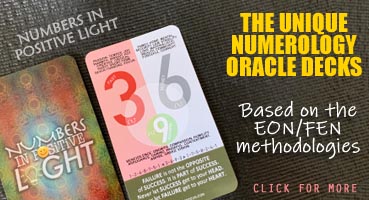Fighting over inheritance
Here’s a quote from Isadora Duncan – “The finest inheritance you can give to a child is to allow it to make its own way completely on its own feet.” In many ways, there is much truth in it as a person’s beliefs, especially when they’re older, are a cumulative of the experiences they’d when they were young. This includes family upbringing and values, social ethics, environment, and cultural and political influences. While the parents cannot entirely stop their children from external influences, the ways they inculcate their kids are of importance. From the Elements of Numbers (EON) principles, the internal family influence and upbringing played a critical part in character building of their children – the self-beliefs, perspectives, and attitudes.
 Many parents wanted their children to study hard and have a good career with high-paid job, unknowingly created the “money can resolve everything” mentality. Money is not everything. Sure, many of us understand that, but few dare accepts the fact as they felt with the little money they currently have, how can they pursue happiness? Here’s a quote from Gary Vaynerchuk – “People are chasing cash, not happiness. When you chase money, you’re going to lose. You’re just going to. Even if you get the money, you’re not going to be happy.” Yes, it’s all in the mindset. Many poor people are much happier with their simple lives than wealthier people with volatile lifestyles. These wealthy people worried more about their finances daily. Some of them feared the day their children would fight over the inheritance and breaking up the family relationships. And then there’re some others worried about their wealth or the inherited wealth, and family kinships could be gone quickly.
Many parents wanted their children to study hard and have a good career with high-paid job, unknowingly created the “money can resolve everything” mentality. Money is not everything. Sure, many of us understand that, but few dare accepts the fact as they felt with the little money they currently have, how can they pursue happiness? Here’s a quote from Gary Vaynerchuk – “People are chasing cash, not happiness. When you chase money, you’re going to lose. You’re just going to. Even if you get the money, you’re not going to be happy.” Yes, it’s all in the mindset. Many poor people are much happier with their simple lives than wealthier people with volatile lifestyles. These wealthy people worried more about their finances daily. Some of them feared the day their children would fight over the inheritance and breaking up the family relationships. And then there’re some others worried about their wealth or the inherited wealth, and family kinships could be gone quickly.
Marilyn lives in Europe and bought my book, “Elements of Numbers: Fast and Easy Character Profiling” online some years back. She emailed me recently highlighting the problems she had. Below is an excerpt of our conversation:
Marilyn: I have a lot of problems with my brother since the death of my mother. He is really interested by money. Can you have a look?”
Ron: Yes, there are signs of strong money ‘desire’ last year, resulting in frequent quarrels. Might affect his career too. By the way, which year did your mother died? Early this year or late last year (like Sep-Dec)?
Marilyn: My mother died last year in July. I have a lot of problems concerning the inheritance with him and the apartment of my mother.
 In previous FEN (Five Elements Numerology) classes (Advanced module), I shared a unique discovery to identify the parental health in a person’s chart. This means by checking on Marilyn’s brother’s EON chart, we could determine the health conditions of the person’s parents. For easier reference, let’s named her brother as “Victor.” Oh, I don’t see the need to predict the death day, or interest to pursue more research on the eventual day. That’s secondary to me since we all will die one day, eventually. What’s interesting about applying the “Parental Health” technique is knowing the year when your father’s or mother’s health might not be as good as the previous year.
In previous FEN (Five Elements Numerology) classes (Advanced module), I shared a unique discovery to identify the parental health in a person’s chart. This means by checking on Marilyn’s brother’s EON chart, we could determine the health conditions of the person’s parents. For easier reference, let’s named her brother as “Victor.” Oh, I don’t see the need to predict the death day, or interest to pursue more research on the eventual day. That’s secondary to me since we all will die one day, eventually. What’s interesting about applying the “Parental Health” technique is knowing the year when your father’s or mother’s health might not be as good as the previous year.
In normal cases, it could just be a worsening of the health, like frequent coughing, flu, and sudden illness, that required more attention, time, and medical cost to recuperate. In extreme cases, when the health condition worsens or ignored, it could lead to serious implications, including death. Marilyn’s reply on her mother’s death last year reinforced the “Parental Health” observation. That is more than adequate to me, to provide students to identify the general health conditions – their own health, their parents’s health, and their spouse’s health – from a single chart. No, it’s not a conclusive and definite method, but it can provide a general indication of failing health conditions. This allows us to decide if we want to take measures to improve our health before the symptoms appear. The point here is to prevent the symptom from appearing, so when the poor health conditions don’t happen during the year that you’ve identified, that’s a good precautionary measure taken by the person.
 I’ve also shared with FEN students about wealth numbers. In basic EON method, we could associate the number 6 as money. From the Five Elements principles, we could also associate the number 1 as partial 6 too. Using a simple analogy, number 1 is like “small money” and number 6 is like “big money.” In Victor’s EON birth chart, the number 5 could transform to “absorb” the influences from neighbouring numbers. In cases where the numbers 1, 5, and 6 are closely connected, the number 5 could transform to inhibit traits of numbers 1 and 6 as well. That means the tendency of having “money-mindedness” thinking. The 1-5-6 and 6-9-6 patterns also appeared in Victor’s PY2017 chart – that means he is more motivated about “chasing money” this year. While there might be a higher chance of achieving what he wants, there are “unfortunate” tendencies that what while money could come in fast, it could also “runs out” quickly too. The signs are from the 3-9-3 and 9-3-3 patterns present in his PY2017 chart. The 4-1-5-6-9-6 is suggesting a selfishness acts to plan and attempt to gain the wealth [Plan – Alone – Obstacle – Money – Success – Money].
I’ve also shared with FEN students about wealth numbers. In basic EON method, we could associate the number 6 as money. From the Five Elements principles, we could also associate the number 1 as partial 6 too. Using a simple analogy, number 1 is like “small money” and number 6 is like “big money.” In Victor’s EON birth chart, the number 5 could transform to “absorb” the influences from neighbouring numbers. In cases where the numbers 1, 5, and 6 are closely connected, the number 5 could transform to inhibit traits of numbers 1 and 6 as well. That means the tendency of having “money-mindedness” thinking. The 1-5-6 and 6-9-6 patterns also appeared in Victor’s PY2017 chart – that means he is more motivated about “chasing money” this year. While there might be a higher chance of achieving what he wants, there are “unfortunate” tendencies that what while money could come in fast, it could also “runs out” quickly too. The signs are from the 3-9-3 and 9-3-3 patterns present in his PY2017 chart. The 4-1-5-6-9-6 is suggesting a selfishness acts to plan and attempt to gain the wealth [Plan – Alone – Obstacle – Money – Success – Money].
[Note to FEN students – Marilyn’s Mom died last year, and Victor has been fighting over the inheritance and the house. Hint – identify the additional financial element manifesting the greed and “money chasing” pursuits.]
 Not everyone with 1-5-6 or having patterns suggesting the likelihood to have “money-mindedness” thinking is really chasing after money. Once again, it’s all in the mind. That brings me back to the family upbringing influences mentioned in the first two paragraphs. We could associate the 8-5-4 pattern in Victor’s chart as [Stress – Stubborn – Emotional]. This suggests Victor could experience stressful and emotional times when young, and the relationship with his father might not be on fulfilling and happier level. His father might have to shoulder heavy responsibility at work, and these could create the need for immediate or hasty actions to resolve financial issues and other problems quickly. Over time, the assumption that money can resolve everything becomes habitual beliefs. Victor’s current behaviours and attitudes could have partly been influences by his father’s actions and survival experiences…
Not everyone with 1-5-6 or having patterns suggesting the likelihood to have “money-mindedness” thinking is really chasing after money. Once again, it’s all in the mind. That brings me back to the family upbringing influences mentioned in the first two paragraphs. We could associate the 8-5-4 pattern in Victor’s chart as [Stress – Stubborn – Emotional]. This suggests Victor could experience stressful and emotional times when young, and the relationship with his father might not be on fulfilling and happier level. His father might have to shoulder heavy responsibility at work, and these could create the need for immediate or hasty actions to resolve financial issues and other problems quickly. Over time, the assumption that money can resolve everything becomes habitual beliefs. Victor’s current behaviours and attitudes could have partly been influences by his father’s actions and survival experiences…
On the other hand, there are tendency signs suggesting Victor’s mother could have ‘spoilt’ him when he’s young, pampering him with extra pocket-money and gifts. Consequently, those could have inculcated the thirst for “easy and fast money” pursuits. If Victor is married, there are also signs that the fight over the family inheritance and mother’s house is instigated, in some ways, by his wife or a female person.
In the fight for inheritance and asset ownerships, legal judgements are usually based on factual documents and the law. Let’s hope there are various amicable solutions for Marilyn and Victor on their disputes, and opportunities for better family relationships.
Regards, Ron WZ Sun















